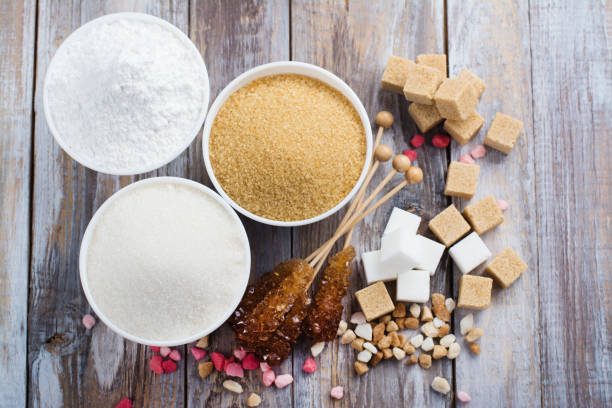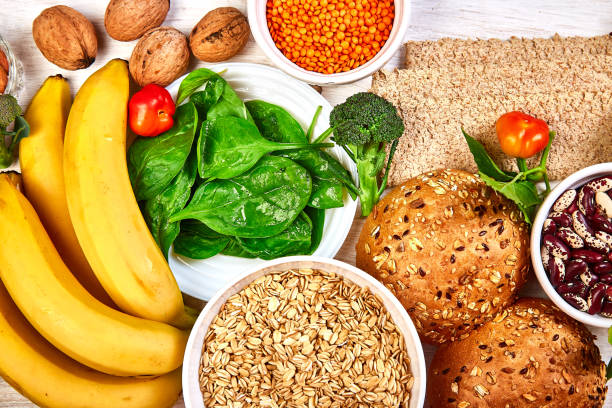Managing blood sugar levels is essential for overall health, especially for people with diabetes or prediabetes. While medication plays a key role in controlling blood sugar, there are many natural strategies you can use to help manage these levels effectively. By adopting healthy habits, you can support your body in maintaining balanced blood sugar levels and improve your well-being.
In this blog post, we’ll explore 10 proven and natural ways to lower blood sugar levels through diet, exercise, and lifestyle changes. These easy-to-follow adjustments can have a significant impact on managing your health, offering a more holistic approach without relying solely on medication.
1. Incorporate More Fiber-Rich Foods
Fiber is one of the most effective nutrients for managing blood sugar levels. It helps slow down the absorption of sugar into your bloodstream, preventing sudden spikes and crashes in blood sugar. Eating a diet high in fiber can also support healthy digestion and improve heart health. By including more fiber-rich foods in your diet, you can better control your blood sugar and boost overall well-being.
Best Fiber-Rich Foods:
- Vegetables: Broccoli, spinach, kale, and other leafy greens
- Fruits: Apples, berries, pears, and citrus fruits
- Legumes: Lentils, chickpeas, black beans, and other beans
- Whole Grains: Oats, quinoa, brown rice, and whole wheat products
Including these fiber-rich foods in your daily meals can help keep your blood sugar stable and support your overall health.

2. Exercise Regularly
Regular physical activity is essential for managing blood sugar levels. Exercise helps your body use insulin more effectively, which can lower blood sugar and prevent spikes. Staying active also improves your overall health and helps keep blood sugar under control. Even moderate activities, like walking, cycling, or gardening, can have a big impact on your blood sugar levels.
Recommended Exercises:
- Aerobic Exercises: Jogging, swimming, cycling, and dancing
- Strength Training: Weightlifting, resistance band exercises, and bodyweight workouts
- Flexibility and Stress Management: Yoga, Pilates, and stretching routines
Incorporating these exercises into your routine can help manage your blood sugar, reduce stress, and improve your overall well-being.
3. Add Apple Cider Vinegar to Your Diet
Apple cider vinegar has been shown to help lower blood sugar levels by improving insulin sensitivity. It can be a simple and effective addition to your routine. Drinking it before meals may help reduce the rise in blood sugar after eating. To get the best results, it’s important to consume apple cider vinegar in a diluted form, as undiluted vinegar can be too harsh on your teeth and stomach.
How to Use Apple Cider Vinegar:
- Mix 1–2 tablespoons of apple cider vinegar in a glass of water
- Drink it 15–20 minutes before meals for the best blood sugar benefits
Including apple cider vinegar in your daily routine can be an easy, natural way to help manage your blood sugar levels.
4. Stay Hydrated
Drinking enough water is essential for keeping blood sugar levels in a healthy range. Staying properly hydrated helps your kidneys remove excess sugar from your bloodstream through urine. Water also supports the regulation of insulin, which is crucial for managing blood sugar. By drinking enough water each day, you can help your body maintain better control over blood sugar levels.
Tips for Staying Hydrated:
- Drink at least 8 cups (64 ounces) of water daily
- Avoid sugary drinks like sodas, fruit juices, and sweetened teas, which can cause blood sugar spikes
Making hydration a priority is an easy and effective way to help manage your blood sugar naturally.
5. Choose Foods with a Low Glycemic Index (GI)
The glycemic index (GI) is a system that ranks carbohydrates based on how quickly they raise blood sugar levels. Foods with a low GI release sugar slowly into the bloodstream, which helps prevent sudden blood sugar spikes. These foods are ideal for people who want to manage their blood sugar naturally and maintain steady energy throughout the day.
Low GI Foods:
- Non-Starchy Vegetables: Leafy greens, cucumbers, peppers, and zucchini
- Whole Grains: Barley, quinoa, oats, and whole wheat
- Legumes: Beans, lentils, chickpeas, and peas
Choosing low GI foods can help keep your blood sugar levels stable and support your overall health.

6. Limit Refined Carbohydrates and Sugars
Refined carbohydrates and sugars are quickly absorbed into the bloodstream, causing rapid spikes in blood sugar levels. By reducing or eliminating these foods from your diet, you can help maintain more stable blood sugar levels and prevent energy crashes. Avoiding these foods can make a big difference in your overall health and blood sugar management.
Foods to Avoid:
- White Bread and Pasta: Made from refined flour, which can raise blood sugar quickly
- Sugary Snacks: Candy, cookies, cakes, and other sweets that are high in sugar
- Sweetened Beverages: Soda, sweet tea, and other drinks with added sugar that cause blood sugar spikes
Making small changes by cutting out these foods can help you better manage your blood sugar and improve your overall health.
7. Add Cinnamon to Your Diet
Cinnamon has been shown to help lower blood sugar levels by improving insulin sensitivity, making it a powerful and natural addition to your diet. This flavorful spice is easy to incorporate into your daily meals and offers a sweet touch to a variety of dishes. You can sprinkle it on oatmeal, mix it into smoothies, or even add it to your coffee for a tasty and blood sugar-friendly boost.
How to Use Cinnamon:
- Add a teaspoon of cinnamon to your morning coffee or tea
- Sprinkle it over oatmeal, yogurt, or fresh fruit for a sweet and healthy twist
Including cinnamon in your meals can be a simple and delicious way to help manage blood sugar levels naturally.
8. Manage Stress Effectively
Stress can cause blood sugar levels to rise. When you’re stressed, your body releases cortisol, a hormone that can increase blood sugar levels. Learning how to manage stress effectively is an important part of maintaining stable blood sugar. By practicing relaxation techniques, you can help lower your blood sugar levels naturally and improve your overall well-being.
Stress-Reducing Practices:
- Meditation or Mindfulness: Helps calm the mind and reduce stress
- Deep Breathing Exercises: Relieves tension and promotes relaxation
- Journaling or Engaging in Hobbies: Encourages relaxation and emotional balance
Incorporating these stress-reducing practices into your routine can help keep your blood sugar stable and support your health in a natural, effective way.
9. Get Enough Sleep
Sleep is essential for overall health, and it plays a crucial role in regulating blood sugar levels. When you don’t get enough sleep, it can reduce insulin sensitivity, leading to higher blood sugar levels. To support healthy blood sugar and improve overall well-being, aim for 7-9 hours of sleep each night. Prioritizing quality sleep can help keep your blood sugar levels stable.
Tips for Better Sleep:
- Maintain a Consistent Sleep Schedule: Go to bed and wake up at the same time every day
- Create a Relaxing Bedtime Routine: Activities like reading or taking a warm bath can help you unwind
- Avoid Screen Time: Stay away from phones, tablets, and computers at least 30 minutes before bed to help your body relax
By following these simple sleep tips, you can improve your sleep quality and better manage your blood sugar levels.

10. Take Natural Supplements
Certain supplements may play a role in helping lower blood sugar levels naturally. Some of the most researched supplements for blood sugar control include magnesium, chromium, and berberine. These supplements can support your body in maintaining stable blood sugar levels, especially when combined with a healthy diet and lifestyle.
Common Blood Sugar Supplements:
- Magnesium: Helps regulate blood sugar and improves insulin sensitivity, making it easier for your body to control blood sugar levels
- Chromium: Enhances the action of insulin and supports better blood sugar management, helping your body use insulin more effectively
- Berberine: Known for its ability to help lower blood sugar levels and improve insulin resistance, making it a popular choice for blood sugar control
Adding these supplements to your routine may offer additional support in managing your blood sugar naturally, but it’s important to talk to your doctor before starting any new supplement.
Conclusion: Start Taking Control of Your Blood Sugar Levels Today
By incorporating these natural strategies into your daily routine, you can take proactive steps to lower your blood sugar levels and boost your overall health. Small changes, like increasing your fiber intake, adding cinnamon to your meals, or managing stress better, can make a big difference over time. Each of these simple strategies plays a vital role in helping you keep your blood sugar levels in check and supporting your long-term well-being.
If you’re looking for more personalized advice or have concerns about managing your blood sugar, it’s always a good idea to consult with your healthcare provider. Combining these natural methods with any prescribed treatments is the best approach to achieving optimal health.
Ready to take control of your health? Start today by implementing one or more of these strategies! Share with us in the comments below which tip you’ll try first or tell us your own tips for naturally managing blood sugar. We’d love to hear from you!

